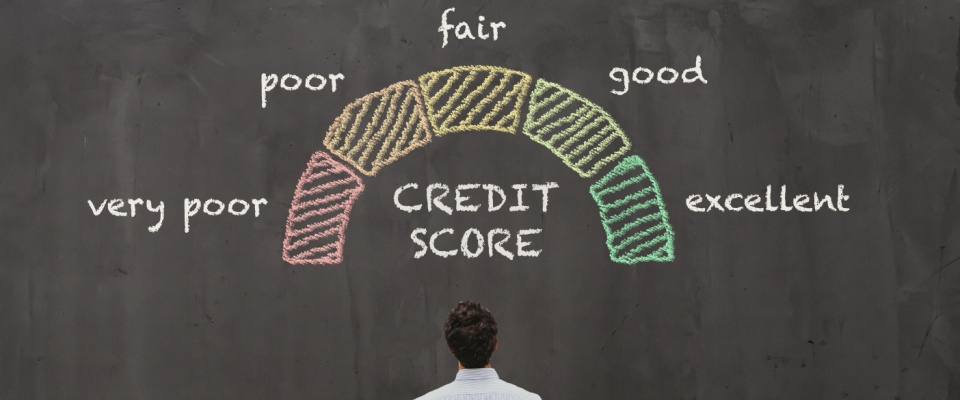Does Paying Rent Help Your Credit Score? Here’s How Rent Payment Reporting Can Benefit You
Share this article:
Prepared in Partnership with IdentityIQ.
Your rent is likely one of the biggest payments you make each month. But did you know that, in many cases, those payments don’t help your credit score?
While you may assume your good payment habits are working in your favor, most rental payments aren’t automatically reported to credit bureaus.
That means renters are missing out on a major opportunity to build credit — unless they choose a rental platform that helps them take advantage of rent payment reporting.
In this post, we’ll share what you need to know about rent reporting, why it’s important, and how to get your rent payments reported to the major credit bureaus.
Why your credit score matters
Your credit score isn’t just a random number. It’s a calculated score that tells lenders and other companies how trustworthy you are with borrowed money.
Your credit score can affect nearly every aspect of your financial life, including:
- Getting approved for credit cards, auto loans, or mortgages
- Your interest rates (higher scores = lower rates)
- How much you pay in security deposits for utilities or rentals
- Getting approved for a new rental home or apartment
- Insurance rates for car, renters insurance, and homeowners insurance
- And even qualifying for job opportunities
In other words, building a good credit score helps you save money and opens more doors.
Why rent payments don’t automatically show up on your credit report
You may think that just paying your rent on time is enough to help your credit. Unfortunately, that’s not always true.
Most landlords and property managers don’t report your rent payments to the credit bureaus. This is typically due to a few reasons:
- There’s no universal requirement or system for landlords to report rental payments.
- It takes time and money for landlords to implement a reporting process.
- Only certain platforms and services make rent reporting easy and secure.

As a result, unless you live in a property that offers rent reporting through a platform, your monthly rent payment may never be reflected on your credit report — even if you’ve been paying on time for years.
How rent reporting works
Rent reporting is the process of reporting your rent payments to one or more of the three major credit bureaus: Experian, TransUnion, and Equifax.
When your property manager partners with a rent reporting service, your rent payment history can be securely shared with credit bureaus. RentCafe offers free rent payment reporting through IdentityIQ when you opt in to Rewards by RentCafe.
You can also enroll in a rent reporting service independently if your property management is not currently partnered with one.
This is how rent reporting works through RentCafe:
- You enroll in rent payment reporting by opting in to Rewards by RentCafe through your RentCafe portal or app.
- You pay your rent like normal.
- Rent payments are automatically tracked by the rent payment reporting software.
- On-time payment details are reported to all three major credit bureaus each month.
- Your credit report reflects your rent history, which helps grow your credit score over time.
The best part? It’s usually seamless for renters after the initial setup — no extra effort required.
How much can rent reporting improve your credit score?
While everyone’s credit journey is unique, rent reporting often delivers a noticeable improvement in your credit score. According to various credit industry studies:
- A TransUnion study showed rent reporting increased credit scores by an average of 60 points, and most people saw an increase in their credit score during the first month of reporting.
- For renters with little to no credit history, reporting rent can help establish a credit score from scratch. There are more than 45 million Americans who fall into that category, often referred to as “credit invisible.”
- Newer credit models (like FICO 10T and VantageScore 4.0) put greater emphasis on non-traditional tradelines like rent payments than older scoring models did.

Example:
Let’s say you had a 615 credit score, which typically falls into the “Fair” credit score tier. You may have trouble getting approved for a loan, and won’t qualify for the best rates.
If you add positive rent reporting to your credit report and experience the average credit score increase of 60 points, your score would increase to 675, moving you into the “Good” credit score tier.
With this improved score, you are now more likely to be approved for loans, qualify for lower interest rates, and get access to other credit-qualified opportunities.
Better credit = More savings
Improving your credit score doesn’t just look good on paper — it can have real financial benefits. A recent study found that increasing your credit score tier from “fair” to “very good” could save you more than $39,000 over time.
Here’s how a better credit score helps you save:
Lower interest rates
Most people know that a better credit score will save you money when you need a loan — whether that loan is for a house, a car, or something else.
Here’s an example of how that works:
- Let’s say you want to buy a car. You need a loan for $20,000, and plan to pay it back over a 60-month period (also known as the loan term).
- A person with a 680 credit score may qualify for an auto loan at 5% APR.
- Someone with a 580 credit score may get a rate closer to 12% APR.
- That difference would mean paying $4,000+ more in interest because of the increased interest tied to your credit score.
Utility account savings
Utility accounts are considered lines of credit, since you use the services first and pay for them later, typically at the end of the month.
Having a low credit score or no credit history could make it difficult to even get utility accounts set up, and you may be required to pay a larger deposit or add a co-signer to your account.
With a better credit score, you could qualify for reduced security deposits or even no deposit, and possibly better utility rates.

Lower security deposits
When you’re ready to apply for a new rental, a credit check is often one of the first steps taken to determine your eligibility.
With a higher credit score and a history of on-time rent payments clearly shown on your credit report, you’ll have better odds of being approved to rent the home and may also qualify for a reduced security deposit.
Credit card & loan approvals
Higher credit scores can open up access to credit cards with rewards, better interest rates, and lower fees.
You may also qualify for loans with better terms or smaller down payments.
Insurance rates
In some states, your insurance company may offer you different rates for car insurance, renters insurance, or homeowners insurance based on your credit score.
Job opportunities
Many employers conduct a pre-employment credit check during the hiring process to help determine how trustworthy you are with money that isn’t yours. If you have a better credit score, they may select you over other interviewees.
In short, a higher credit score creates more financial opportunities and can save you a significant amount of money over time.

Why renting through RentCafe gives you a credit-building advantage
Not all rentals are created equal when it comes to your financial health.
RentCafe is more than a listing site; it’s a property management platform used by thousands of professionally managed apartments and communities across the U.S. When you rent through a RentCafe-powered property, you can unlock access to built-in benefits that many properties don’t provide.
RentCafe + IdentityIQ = Smart credit building
Renters in participating RentCafe-connected properties receive free rent payment reporting to all three major credit bureaus by opting in to Rewards by RentCafe.
RentCafe renters can also enroll in an IdentityIQ Credit Advantage membership to receive additional benefits, including:
- Real-time credit monitoring and alerts
- Dark web monitoring and alerts
- Industry-leading identity theft protection and restoration
- $1 million identity theft insurance, underwritten by AIG
- Access to your credit reports and scores
- Credit & Debt budgeting platform and financial wellness tools
- And more
This means your rental could be doing more for you, helping you protect your financial future and build credit every month with no extra effort.
Final thoughts: Let your rent work for you
Rent payment reporting is a powerful tool for building and improving your credit score. And with RentCafe and IdentityIQ, it’s easier than ever to take advantage of it. Whether you’re just starting your credit journey or working to improve your score, renting smarter can help you reach your goals faster.
Ready to find a rental that supports your financial growth? Explore RentCafe listings and discover how renting through a RentCafe-powered property can give you more than just a great place to live – it can give you a path to a stronger financial future.
Share this article:
Hannah Love is the Growth Content Manager at IdentityIQ, a partner of RentCafe, where she blends over 10 years of writing and SEO experience to help brands connect and grow. With experience spanning fintech, education, personal development, and more, she creates high-performing content that is clear, useful, and meaningful.
The Ready Renter has your back
Tips, news, and research curated for renters, straight to your inbox.




Related posts
Subscribe to
The Ready Renter newsletter







